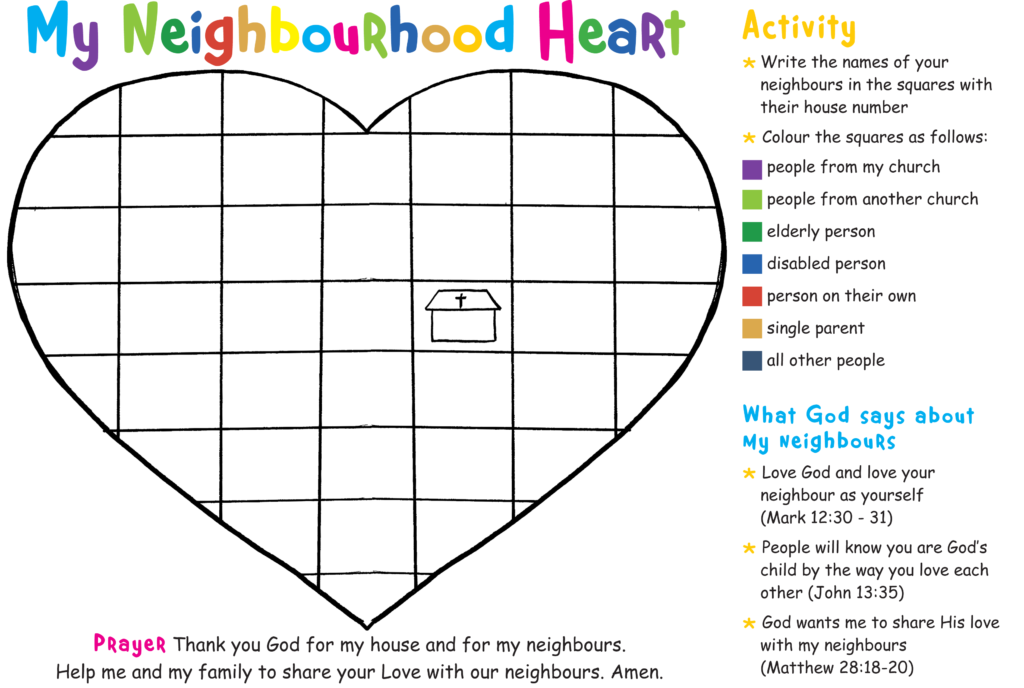Blog 15 Words From A Shepherd’s Heart
Times have changed since I was a child. I remember when Canada was referred to as a Christian nation and most people had some connection to a local church. DVBS was a neighborhood event and we even prayed the Lord’s Prayer at the beginning of every school day, in public school. Many people had at least some idea of who Jesus is and the basics of what sin means and that Jesus’ death and resurrection save us. That was a long time ago…another century in history!
In the 21st century, things have changed but I think it can take a while for us to realize what has changed and how much things have changed. Canada is no longer considered a Christian nation. A group that is growing quickly are those who would check off “none” in the religion category of a census. Our children are going to school with children who, more and more, have absolutely no connection with a church (Protestant or Catholic) or know the Lord’s Prayer.
Just because we used to pray the Lord’s Prayer in school, did that mean everyone understood what they were saying or even believed it? If we were to give equal opportunity for all children of different faiths, that would mean having a number of different prayers throughout the day. I don’t think school is the place to enforce faith practices (we do believe in the separation of church and state/government, right?). What it reminds us is that faith is primarily taught in our homes and within our faith communities.
So what does that mean for us as we parent our children? Do we encourage our children to be vocal about their faith in public? Do we advise them to not talk about it and just leave those conversations at home and church? Should we consider options like homeschooling or private schools instead of sending our children to public school? I can’t answer those questions for you, but I think there are some things we can consider as we seek to raise children who have a “sticky” faith (a life-long relationship with Jesus).
God Loves Everyone
“For this is how God loved the world: He gave his one and only Son, so that everyone who believes in him will not perish but have eternal life. God sent his Son into the world not to judge the world, but to save the world through him” (John 3:16-17, NLT). This popular verse reminds us of who God is – a God who loves and who saves. We need to remind ourselves that we live in a world full of people that Jesus loves and he wants them to know that he loves them. This includes people who don’t know him, people who hate him, and even people who make fun of him. How does that change our perspective of others? Whether they know him or not, they have a God who desires to have a relationship with them. We don’t need to be afraid of people who are different from us or believe differently. We can see them as beloved of God and pray for opportunities to share God’s wonderful, good news that he loves them and provided a way to save them. The greatest command Jesus gave us is to love as well. We are to love God and love others as we love ourselves (it’s important to love ourselves, too!). We are to imitate God in his love. I think we often tell our children to love others when it comes to their siblings or their friends, but what about those who are different from us? What about those who believe or think differently? How can we live a life loving others? How can we encourage our children to do this as well? More and more I’m realizing how much my life and example influences my children. What impact could our families make if we made this our way of life?
Loving Jesus is an invitation
““Look! I stand at the door and knock. If you hear my voice and open the door, I will come in, and we will share a meal together as friends” (Revelation 3:20, NLT). We don’t have to love Jesus, God doesn’t force it on us. Ever since humans have turned away from God’s way to live (Genesis 3), he has been inviting us back into a relationship with him. Just as God doesn’t force us to love him or invite him in, we can’t force others to, either. Maybe instead of feeling that we need to “convert” other people, or tell them the “right” way to believe, we get to know them and ask questions about what they believe? As we get to know others, we will better understand how God is at work in their lives, and may have opportunities to share God’s invitation to them. It is, after all, God who draws people to himself. That’s his job. What we can do is pray with our children for their friends, teachers, and neighbors. We can also pray for our children that they will continually be open to God’s invitation in their lives. Living out our faith daily and being deeply in love with Jesus is the invitation we are asked to accept.
The Baptist faith has a history of championing freedom of religion
Did you know that Baptists are big advocates of freedom of religion? They were one of the first church groups to champion the separation of church and state over 400 years ago. They understood faith as an individual choice and not one that should be dictated by the government.* Jesus set this example through his life and teachings. He didn’t make people believe him or what he said (as God, he could have!). Jesus wasn’t threatened by other ideas of who God is, he simply taught what was true and let the listeners decide for themselves. If Jesus didn’t make people believe, then we probably shouldn’t either. Everyone has the right to choose how they want to worship God and whether they will worship God. Again, it comes down to the importance of us living out what we believe and growing in our faith-walk with Jesus.
We are called to live in faith, not fear
“Such love has no fear, because perfect love expels all fear” (1 John 4:18a, NLT). I remember the season when my children were preschoolers and this intense feeling of fear that would come over me as I thought about sending my children to school. What would they be taught? Would the faith I was teaching be able to withstand them being among people who believed differently? In fact, I would say there is a strong culture of fear, overall, in the church about being “in the world.” I am learning that when our faith is in Jesus, it’s not a fragile faith because Jesus is not fragile. He loves our children far more than we do and is at work in our children’s lives in ways we cannot fully understand. If we try to shelter them and surround them only with people who think and believe the same way we do, how will they mature into adulthood? How will they have a faith that can navigate university and work environments? The reality is, parents are the primary influencers in the lives of their children. Ask any teacher and they will affirm that. They can usually see pretty quickly and clearly what is being learned at home. So what are our children learning from us? That is what we need to be most concerned about.

Try an activity like this one with your children to discover who is in your neighborhood or community. Then pray about how you can live out Jesus’ invitation to love and follow him in your own lives and family as well as loving those around you.
With older children, make it a practice to talk about what different people believe and discuss it with them. Ask them what they think about it (don’t just tell them what to think). There may be points that are interesting or make us think about our beliefs in a different way. These conversations may actually help everyone grow deeper in their faith.
* See this article for more on the idea of Baptists and freedom of religion: Baptists by Derek H Davis

Sarah Cogswell is Pastor of Children and Families at The Journey Church in Moncton, NB, Canada. She and her husband David have been married for 24 years and are parents to three amazing teenage/young adult boys. She spent 9 years caring for children in her home, and has hosted 18 international students throughout the years. She is currently working on her Master of Divinity through Acadia Divinity College and enjoys learning and experiencing ministry and faith all at the same time. You can contact Sarah by emailing sarah@onthejourney.ca.

